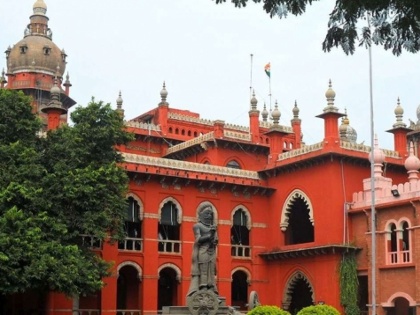Tamil Nadu Temples Restrict Non-Hindu Access Beyond Flagpole, Madras HC Rules
By Lokmat English Desk | Published: January 31, 2024 08:40 AM2024-01-31T08:40:19+5:302024-01-31T08:41:21+5:30
In a controversial decision, the Madras High Court has ruled that non-Hindus who do not believe in the religion ...

Tamil Nadu Temples Restrict Non-Hindu Access Beyond Flagpole, Madras HC Rules
In a controversial decision, the Madras High Court has ruled that non-Hindus who do not believe in the religion will not be allowed beyond the 'Kodimaram' (flagpole) area within Hindu temples in Tamil Nadu. The court directed the state's Hindu Religious and Charitable Endowments department (HR&CE) to install signage indicating this restriction at entrances, near the flagpole, and other prominent locations within temples.
Justice S. Srimathy of the HC's Madurai Bench issued the directive during a hearing on a plea filed by D. Senthilkumar, seeking exclusive access for Hindus to the Arulmigu Palani Dhandayuthapani Swamy temple and its sub-temples. The order applies to all entrances of these temples, mandating clear display boards to this effect, ensuring adherence to Hindu religious customs and practices within temple premises.
The HR&CE department oversees the management of Hindu temples throughout Tamil Nadu. Upon accepting the petition, the court instructed the respondents to place signs at temple entrances, near the flagpole, and at prominent locations within the shrine, clearly stating that "non-Hindus are prohibited from entering the temple beyond the Kodimaram.
The respondents are directed not to allow the non-Hindus who do not believe in Hindu religion. If any Non-Hindu claims to visit particular deity in the temple, then the respondents shall obtain undertaking from the said non-Hindu that he is having faith in the deity and he would follow the customs and practices of Hindu religion and also abide by the temple customs and on such undertaking the said non-Hindu may be allowed to visit the temple, the court ruled.
The respondents shall maintain the temple premises by strictly following the agamas (temple rules), customs and practices of the temple, the judge said. The respondents submitted the said writ petition was filed only for the Palani temple and the order may be restricted to it alone. But the issue raised is larger issue and the same ought to be applicable to all Hindu temples, hence the plea of the respondents is rejected. As stated supra these restrictions would ensure communal harmony among different religions and ensure peace in the society.
The people belonging to Hindu religion have right to profess and practice the faith. Likewise, people belonging to other religions have right to profess and practice their religion. But the customs and practice of their respective religion cannot be interfering with and any interference ought to be curtailed. The temple is not (a) picnic spot or tourist spot. Even in Arulmighu Brahadeeswarar Temple, Thanjavur the other religion people are allowed to admire and appreciate the architectural monuments of the temple, but not after Kodimaram. While admiring the architectural monuments the people cannot use the premises as picnic spot or tourist spot and the temples premises ought to be maintained with reverence and as per agamas.
Open in app